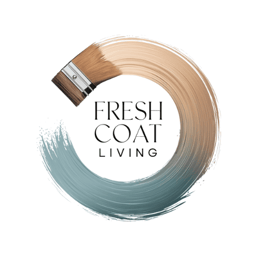Color Psychology: How Paint Colors Affect Your Mood and Home's Atmosphere
Unlock the secret emotional power of paint colors and transform your living spaces from mere rooms to psychological sanctuaries. Dive into a comprehensive exploration of how color influences mood, energy, and well-being, revealing professional insights that will revolutionize your approach to home design.
3/4/20252 min read


Have you ever walked into a room and instantly felt a surge of energy, calm, or inexplicable discomfort? The colors surrounding you are far more than mere visual decorations—they're powerful psychological triggers that silently orchestrate your emotional landscape. Your home's color palette is a sophisticated language that communicates with your subconscious, influencing everything from your productivity to your emotional well-being.
The Hidden Language of Color
Decoding Emotional Resonance
Colors are not passive design elements but active psychological agents that:
Trigger specific emotional responses
Modulate energy levels
Influence cognitive performance
Create environmental narratives
The Neurological Impact of Color
Scientific research reveals that color perception is deeply rooted in our brain's neural pathways. Different wavelengths of light stimulate unique neurochemical responses, creating immediate and lasting psychological effects.
Emotional Spectrum: Color by Color Analysis
Blue: The Calm Conductor
Reduces stress and anxiety
Lowers blood pressure
Promotes mental clarity
Ideal for bedrooms and home offices
Green: Nature's Emotional Balancer
Enhances feelings of renewal
Reduces eye strain
Promotes healing and restoration
Perfect for meditation spaces and living rooms
Yellow: The Optimism Activator
Stimulates mental activity
Increases feelings of happiness
Boosts creativity
Excellent for kitchens and creative spaces
Red: The Passion Igniter
Increases heart rate
Stimulates excitement
Enhances physical energy
Strategic for dining areas and exercise rooms
Purple: The Spiritual Connector
Encourages introspection
Promotes luxury and creativity
Balances emotional intensity
Ideal for personal sanctuaries
Orange: The Social Energizer
Promotes social interaction
Increases enthusiasm
Stimulates appetite
Great for entertainment spaces
Neutral Tones: The Emotional Chameleons
Provide psychological stability
Create flexible backdrops
Allow emotional breathing room
Essential for balanced interior design
Practical Color Application Strategies
Room-Specific Color Recommendations
Bedrooms: Soft blues, lavenders, muted greens
Home Offices: Sage green, light blues, warm neutrals
Living Rooms: Warm neutrals, soft greens, muted blues
Kitchens: Yellows, warm oranges, soft whites
Bathrooms: Cool blues, crisp whites, soft grays
Advanced Color Interaction Techniques
Layering and Complementary Colors
Professional designers understand that color psychology isn't about single hues but complex interactions:
Create emotional depth through color layering
Use complementary colors for balanced energy
Consider lighting's transformative effect
Integrate texture to enhance color perception
Holistic Color Selection Framework
Emotional Assessment Checklist
Identify room's primary function
Understand desired emotional outcome
Consider natural and artificial lighting
Test color samples in actual environment
Observe color interactions with existing elements
Technology-Enhanced Color Understanding
Modern tools to explore color psychology:
Mood mapping applications
Virtual room visualization platforms
Neurological color response databases
Professional color consultation services
Transformative Potential: Beyond Aesthetics
Colors are more than visual choices—they're emotional architects designing your daily experience. By understanding their nuanced language, you can intentionally craft spaces that nurture, inspire, and reflect your deepest psychological needs.
Your home is not just a physical space—it's an emotional ecosystem waiting to be thoughtfully designed.
support@freshcoatliving.com
© 2025. Fresh Coat Living - All rights reserved.
This page may contain affiliate links, which means I may earn a commission if you purchase through my links at no extra cost to you.
